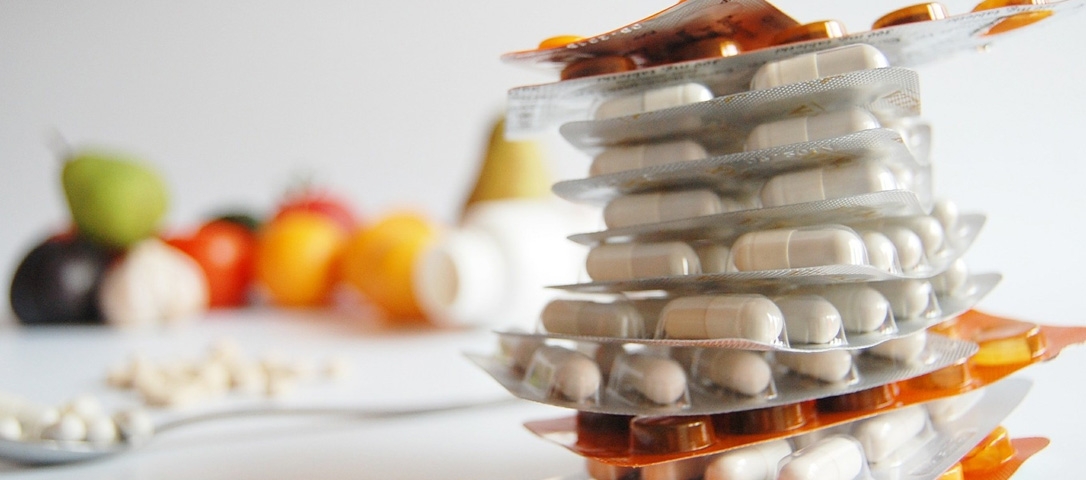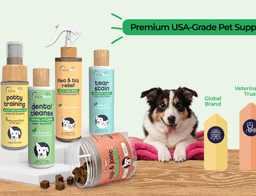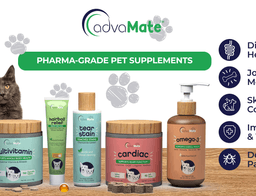COVID-19 & Immunity: Top 6 Supplements to Distribute in the Midst of the Pandemic

Contents Overview
After the pandemic hit, scientists have conducted several research studies to help fight the disease. Most of these qualified studies focus on developing a vaccine or effective treatment in the form of existing medications or new antiviral medications with the goal of slowing and eventually eliminating the spread. At the same time, some scientists have been focusing on understanding the virus transmission paths in order to suggest appropriate preventive measures. The first measures presented by public health agencies were focused on sanitation, such as educating the public on personal hygiene and extensive disinfection of public areas, followed by promoting the use of masks and required social distancing. But as many countries have been opening up and shifting back to normal life, continuing such measures will be difficult especially in light of the ongoing negative economic impact. This is why boosting immunity might be the best preventative method to fight the virus, or at least reduce the severity of symptoms. Consequently, long term growth of immunity-focused nutritional supplements will be the highest growth segment of the industry.
It is prudent for a smart distributor to also keep in mind that further research on supplementation benefits for Covid-19 patients is growing rapidly. Therefore, it can be expected that new results showing in more detail how nutraceuticals are helping to prevent the virus spread, will increase the demand significantly. For example, in Alberta, Canada scientists are rushing to prove the relationship between vitamin D and Covid-19. On the consumer side, 73% find products fortified with added nutrients appealing, and more than 87% are expressing an interest in immune health, according to a Global Data report. In addition, nutritional supplements have been receiving more attention from healthcare professionals, as more and more doctors are supporting public health officials in including nutritional supplementation as a means to cope with the spread of infections. And since the threat of the COVID-19 pandemic doesn’t seem to be abating any time soon, distributors of pharmaceuticals and healthcare products are positioning to support the increased demand, and make sure they are prepared to offer suitable nutraceuticals to the market.
In Alberta, Canada scientists are rushing to prove the relationship between vitamin D and Covid-19.
To learn which products will experience the greatest growth, our team dug deep into published scientific research from all over the globe and surveyed our global distribution network. As a result, we are uncovering six types of supplements that the scientific and medical community are promoting in the fight against the new disease.
Vitamin D

The Frontrunner for Fighting Covid-19, Bringing Many Benefits
Having sufficient levels of vitamin D in our system is an important part of optimal immune function. As a fat-soluble nutrient, it is essential to the actual health and functioning of the body’s immune system, and it has been shown vitamin D helps fight acute respiratory infections. Conversely, low levels are associated with increased risk of upper respiratory tract infections, such as influenza or allergic asthma. Depending on blood levels, anywhere between 1,000 and 4,000 IU of supplemental vitamin D per day is sufficient for most people, though those with more serious deficiencies often require much higher doses. In general, many populations are deprived of vitamin D, as there are not many foods, such as mushrooms, rich in this nutrient. It is true that another source of it is the sun, however, staying indoors because of lockdown measures in many Covid-19 infected areas, has left many deprived of this essential vitamin.
So, even if there is no conclusive evidence that taking vitamin D supplements will significantly reduce the risk of catching coronavirus, experts assume it may have benefits during the pandemic. Not only because it is believed to have anti-inflammatory effects, but also because vitamin D deficiency could possibly be linked with worse clinical outcomes in case of catching the virus. Some studies suggest people with low vitamin D levels will suffer from more severe symptoms and will have a higher risk of being admitted to the ICU, as well as be twelve times more likely to die because of it. Additionally, vitamin D is known to have a crucial role in the regulation of the immune system, and the results of a Philippino study suggest, increase in D level in the body could improve clinical outcomes or mitigate severe to critical ones. It is true that conclusions form several studies are not enough to make claims with certainty, but the fact people with darker skin have been shown to be affected more heavily by the pandemic might be explained by the fact that those populations are more prone to vitamin D deficiency. Even more, they have this in common with elderly people, people with chronic diseases, and people in nursing homes, who were all hit by the virus more than other demographics. On the other side, researchers in Ireland reviewed data showing Covid-19 infections and deaths are actually lower in Nordic countries, such as Finland and Norway, where vitamin D is added to food or where daily supplement intake is widely encouraged. Conversely, vitamin levels are severely low in Spanish, Italian, and Swiss populations due to the aging population – all countries hit hard by the pandemic.
Beta-Glucan
The Unknown Immunity Booster Projected to Reach $3 Billion USD by 2027
Beta-glucans are known sugars that are found in the cell walls of fungi, yeasts, lichens, bacteria, algae, and plants, such as oats. The product usage has been driving growth in the nutraceutical industry. Since beta-glucan can increase immune health, and count as a nutritious food supplement instead of a synthetic ingredient, consumers wanting to take health precaution steps have been preferring it over other products.
Even before the pandemic, which is expected to boost the market even more, the global beta-glucan market was projected to reach $3 billion USD by 2027, growing at a CAGR of 7.26%. For example, in 2016 its market size was already estimated at $410.6 USD million, with the largest chunk going to soluble beta-glucan form, amounting to 33.96% of the market.
Geographically, this nutraceutical market is segmented into seven regions: North America, Latin America, Eastern Europe, Western Europe, Asia Pacific, Japan, and Middle East & Africa. In 2014, the dominant share of the market went to Western Europe, however, Asia-Pacific has been the fastest-growing region since then, anticipated to expand at a CAGR of 5.75% between 2020 and 2025.
Vitamin C
The Most Popular Immunity Defender with Important Role in Immune Health
Growth and function of immune cells, antibody production, enhancing cell protection abilities, clearing out and replacing old cells with new ones – all the roles why vitamin C is probably the most known and popular supplement to take in order to protect yourself against viral infections. It also functions as a powerful antioxidant. This is why it also protects against damage induced by oxidative stress, occurring with the accumulation of free radicals, which negatively affect immune health. In the past, research has shown that taking vitamin C can reduce the duration and severity of upper respiratory tract infections, like the common cold. For example, a regular dose of 1 to 2 grams per day has been demonstrated to reduce the duration of the colds by 8% in adults, and 14% in children.
Vitamin C is probably the most known and popular supplement to take in order to protect yourself against viral infections.
Moreover, intravenous vitamin C treatment can help with more severe infections, such as sepsis or acute respiratory distress syndrome (ARDS), by mending the symptoms. In particular, vitamin C, polyphenols, and flavonoids can play a protective role in lung infections, being immune modulators, and inflammatory mediators.
How about the coronavirus? More studies have to occur to link vitamin C supplementation directly with the effect on the development or spread of coronavirus disease. However, many results confirming vitamin C supplements significantly affect immune health, especially if individuals don’t get enough of it through proper diet, should not be diminished, as it has been proven it can help fight viral infections in general. This is why clinical trials with vitamin C infusion for the treatment of severe Covid-19 patients have already been suggested. In the end, it is smart to note the upper limit for vitamin C, which is 2,000mg, even though supplemental daily doses typically range only between 250 and 1,000mg.
Blackseed Oil
The Niche Natural Immunity Ingredient Gaining Popularity
The global blackseed oil market is projected to progress by almost 22% CAGR from 2019 to 2023, rising by $23.74 million USD. This herbal supplement capsule segment will be seeing the highest growth and will, together with other forms, bring high sales revenues in the next 10 years, mainly in the Asia Pacific region. The reasons for this are low costs and great availability of the raw ingredient. Additionally, significant technological advances have been made in the cold-press extraction methods for this oil, making high-quality products easily available and positively impact the global market growth even before Coronavirus pandemic hit. As black seed oil contains many vitamins and nutrients such as vitamin B1, B2, B3, folate, calcium, phosphorus, copper, and zinc, and thus supports body functions such as immunity, growth on the global market is imminent.
Zinc
The Most Popular Mineral for Immune System Function and Inflammatory Response
From protection against respiratory tract infections to reducing the duration of the common cold, sufficient levels of zinc are crucial for the health of an individual. This is because zinc is essential for an immune system function. The body needs it to develop immune cells and proper inflammatory response, and deficiency in this element can significantly affect your immune system’s ability to function properly. Additionally, studies have suggested zinc may slow the ability of viruses to make copies of themselves inside your body. Still, deficiency is common in older adults. Thus, supplementation with daily dose under the 40 mg limit is recommended, but it is important to follow medical advice and instructions when taking it, as too high dosages can make you sick and actually lower your body’s immune system response. Zinc can interfere with other dietary nutraceuticals as well.
In relation to Covid-19, zinc sulfate may be effective for better patient treatment, especially in combination with antimalarial drug hydroxychloroquine.
Echinacea
The Up-and-Coming Herbal Supplement
Echinacea is another herbal supplement expected to grow heavily, as its market size is expected to reach USD 8.5 billion by 2025. From 2018 to 2025 it is projected to expand at a CAGR of 6.2%.
Widely used for a range of medicinal benefits, it can not only improve immunity but also deducts inflammation and helps fight infections, such as a common cold. One of the largest studies demonstrating its benefits, published by William Reed Business Media, indicated that this herbal ingredient can reduce recurrent colds by 60%, and its duration by 26%.
Echinacea market size is likely to grow because awareness about its health benefits are growing. For example in 2018, when we haven’t even imagined the Covid-19 pandemic and its influence on preventative health needs yet, sales of echinacea already amounted to $110 million in the US. Even more, in 2017, the Echinacea segment accounted for the largest revenue share of 34.9% of the global market. The up-and-coming herbal supplement is regarded as the third most popular product in the US distribution network. However, it is quickly gaining on trendiness in other regions such as Asia-Pacific as well, where high adoption of the supplement for infection prevention is starting to happen.
A Medical Distributor

The One to Be Prepared
With at least six types of supplements showing potential benefits in relation to the Covid-19 fight, it is clear a well-informed medical distributor won’t only seek out personal protective equipment and testing devices for its imports. To thoroughly provide its community means to limit the spread and be completely prepared for the future ‘second-wave’ outbreaks, one can therefore also:
- Introduce new lines of products, especially if the company ranges so far don’t include AdvaLife™ supplements, as this is the best time to stock up on nutraceuticals due to expected demand growth.
- Stock up on AdvaLife™ supply if one is already importing Immunity Syrup, Vitamin D3, Vitamin C, and Zinc, as supplements generally have a longer-lasting shelf life. Preparing yourself for a possible new outbreak on the supplements side is a good idea, especially since the supply chain for some vitamins might also become more scarce as it happened with other Covid-19 products in high demand.
- Focus on sharing as much information possible with clients and business partners to inform them about the benefits of supplementation on individual health and immunity response. This can be done via packaging, inserts, webpage, pamphlets, or any other promotional material as well as by organizing local workshops if restrictions for pandemic allow it.
Don't want to miss the next AdvaCare article?

Recommended Content

Navigating the New Normal of Pharma Tariffs: A Strategic Roadmap for Importers and Supply Chain Managers


Pet Supplements Manufacturer: Functional and Premium Ingredients with USA Quality Standards & Traceability


Global Pet Supplement Market Trends: Why Distributors are Shifting to Premium Grade Quality
